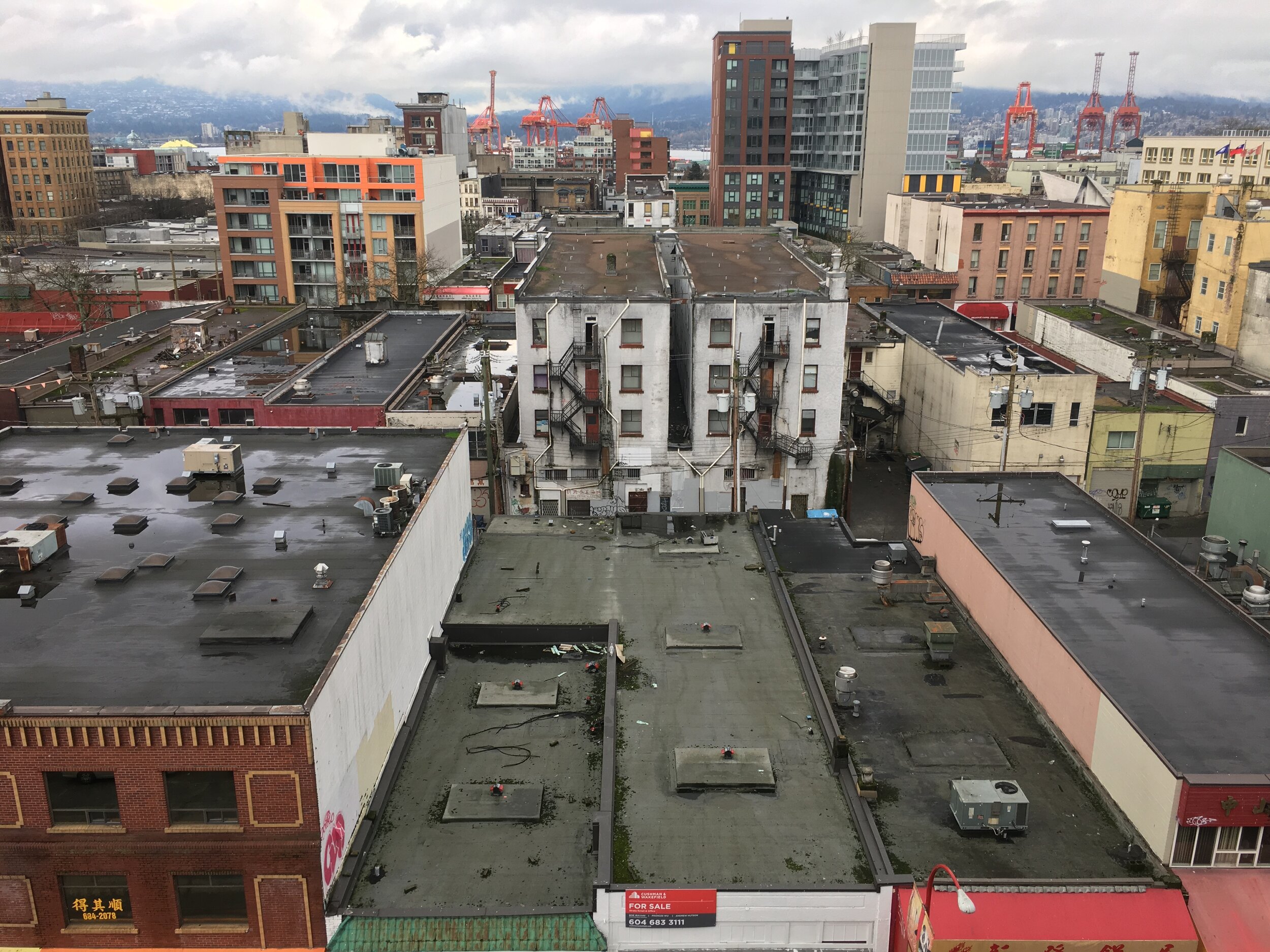research
photo by sarah bodri.
My current research considers the politics of loss, particularly in everyday, local contexts. I draw on a range of fields, most often trauma and memory studies, ethnic studies, and the edges of sociology in order to ask about what it means to fight for justice in the present-day.
I specialize in:trauma and memory studiesstudies of haunting, loss, and paincritical Japanese Canadian / nikkei studiesliterary and cultural studiesthe politics and ethics of research
I am trained in and still learning about:urban studies, subaltern studies, and critical geographiesparticipatory action researchcritical health studies, including the history of public health
published work
Left: “1978 - 765? E. Hastings Street, Hotel Astoria,” File F4 Vancouver heritage survey 1978 - photographs, Series S535 Heritage survey reports and photographs, City of Vancouver fonds, City of Vancouver Archives. Right: Astoria Hotel, fieldwork photograph (author’s photo), 17 October 2018, Vancouver, BC.
Beyond Pain Narratives?: Representing Loss and Practicing Refusal at the Astoria Hotel
Angela May
Urban History Review, vol. 48, no. 2Across conversations in the academy and in public discourse (news, social media, etc.), communities such as the Downtown Eastside are routinely portrayed as being in pain—to the exclusion of stories about how these communities are also strong, hopeful, loving, innovative, etc. This is a problem because it presents communities as though they are only, simply, and inherently broken—which they are not. And yet, we still need to find ways to talk about and reckon with pain, particularly of communities whose pain has long been oversimplified and/or misunderstood. This paper sets out to start a conversation about how we might do so.
Belle Park, from a photo essay titled “Empty or the Wrong Reasons: A Visual Archive of Kingston’s COVID-19 Encampment Evictions” by Aaron Bailey, published in The Kingstonist 11 December 2020. Photo credit: Aaron Bailey.
A Matter of Life and Death: Exploring the Necropolitical Limbo of Kingston’s Housing Crisis in the Era of the COVID-19 Pandemic
Sophie Lachapelle and Angela May
Interdisciplinary Justice Review, vol. 10In Kingston, a mid-sized city in eastern Ontario, during the COVID-19 pandemic and in light of the insufficient housing in the city of Kingston, unhoused people formed an encampment in Belle Park. Not long after the encampment was formed, city by-law officers, police, and public health officials worked in tandem to evict campers from Belle Park. This paper examines these dynamics and draws on critical theory to argue that public health can administer ‘care’ in carceral ways to the advent of a kind of necropolitical limbo, an in-between-life-and-death-world. While the paper is predominantly theoretical, the concern is real-world: what happens when the threat of death looms so large that it pervades everyday governance?
Looking north from the roof of 268 Keefer, fieldwork photograph (author’s photo), 30 November 2018, Vancouver, BC.
Remaining in Death: A Critical Ethnography of Death, Remains, and Community in Vancouver’s Downtown Eastside
Angela Kruger (outdated surname)Vancouver’s Downtown Eastside is a neighbourhood well-known as a site of death and disappearance. These kinds of imaginations of the neighbourhood overwhelmingly depict the dead as simply gone—as if death is the end of the story. Focussing particularly on tenant communities in the neighbourhood’s Single Room Occupancy (SRO) hotels, this Master’s thesis rethinks such depictions, instead considering the dead of the Downtown Eastside as powerful, enduring forces who continue to shape community today.
collaborative
Angela has also worked as a Research Assistant with the projects below.The Right to Remain
The Right to Remain is a SSHRC-funded participatory action research project that seeks to tell the story of the Single Room Occupancy (SRO) hotels in Vancouver’s Downtown Eastside while supporting the organizing of the tenants who dwell within them.
A SHARED Future
A SHARED Future is a CIHR-funded community-based research project dedicated to forming and applying intersectoral partnerships in renewable energy to advance sustainable solutions that honour stories of healing and work towards reconciliation.





